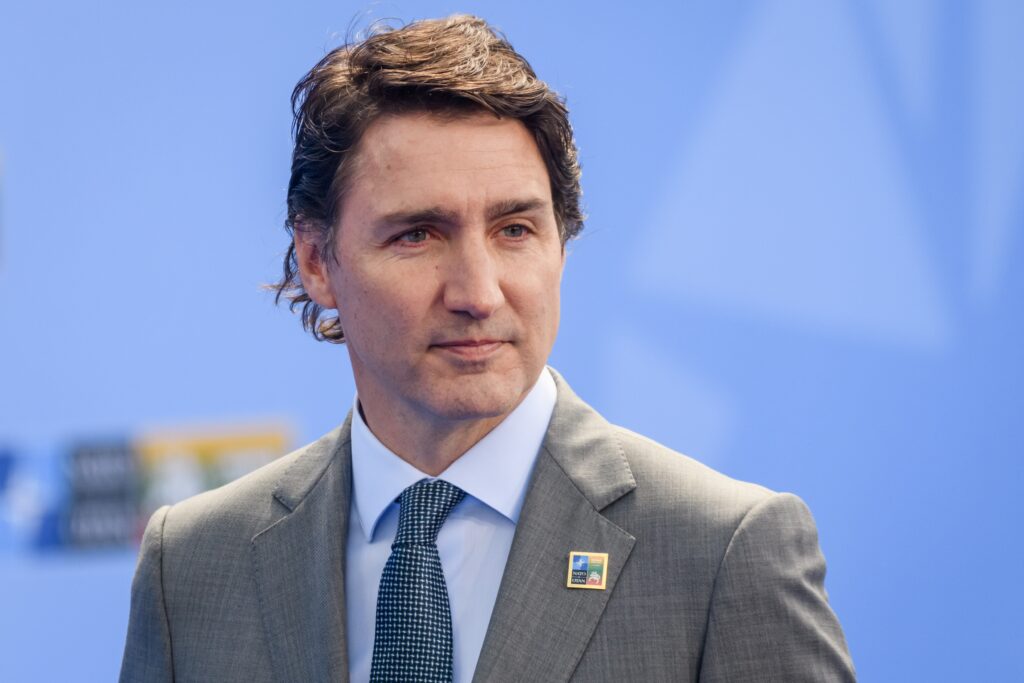U.S. President Donald Trump has confirmed the implementation of new tariffs on Canada, Mexico, and China, resulting in a sharp downturn in global stock markets. The president’s decision to impose 25% tariffs on Canadian and Mexican goods, along with an additional 10% levy on Chinese imports, has sparked immediate retaliation from all three nations, stoking fears of an intensifying trade war. The move has sent shockwaves through global markets, with investors concerned about the long-term economic impact.
Trump’s Tariff Announcement: A Catalyst for Market Volatility
President Trump’s decision to proceed with new tariffs has triggered a wave of concern in international markets. As part of his economic strategy, Trump has imposed a 25% tariff on imports from Canada and Mexico, alongside a 10% levy on Chinese goods. This move is seen as an attempt to reshape global trade dynamics, though its effects have been far-reaching and immediate.
The stock market experienced a sharp drop following the announcement, with major indices sinking as investors reacted to the prospect of escalating trade tensions. The imposition of tariffs on key global partners has added fuel to ongoing concerns about a global trade war, one that could slow down the pace of international trade and economic growth.
Global Markets React to Trade War Fears
Stock markets across the world saw a significant selloff, with major benchmarks in the U.S., Europe, and Asia all experiencing losses. The uncertainty over how other nations might retaliate is leading to a heightened sense of risk among investors. Many fear that the tariffs will lead to higher prices for goods and services, which could hurt consumer spending and business investment.
The uncertainty has created volatility in both the financial markets and the business world. A prolonged trade war could lead to lower economic growth rates, increased production costs, and the possible disruption of established supply chains.
Canada Responds with Counter-Tariffs
In response to President Trump’s actions, Canadian Prime Minister Justin Trudeau has announced countermeasures. Trudeau confirmed that Canada would implement a 25% tariff on U.S. goods worth C$155 billion (€102.1 billion). This includes tariffs on various categories of U.S. imports, with the first wave of tariffs targeting C$30 billion (€19.8 billion) in U.S. goods. These measures are set to take effect on Tuesday, with the remaining tariffs being phased in over the next 21 days.
The Canadian government has made it clear that these retaliatory tariffs are not a first step in escalating trade tensions but a direct response to the actions taken by the U.S. Trudeau emphasized that the tariffs are necessary to protect Canadian businesses and industries from unfair trade practices.
Trudeau Warns of Further Measures
Prime Minister Trudeau did not shy away from warning that further actions could be taken if the U.S. continues with its tariff policy. “Our tariffs will remain in place until the U.S. trade measures are withdrawn,” Trudeau stated. He also highlighted that Canada is working with provinces and territories to devise additional measures in case U.S. tariffs persist.
Canada’s stance reflects a broader sentiment among global leaders that trade imbalances need to be addressed fairly, without resorting to heavy-handed tactics like tariffs. Trudeau’s warning suggests that the trade conflict could intensify if the situation is not resolved diplomatically.
China’s Retaliation and the Escalating Trade War
China, which is also facing new tariffs on its goods, has made it clear that it will respond in kind. The 10% tariff on Chinese imports imposed by the U.S. has already led to retaliatory tariffs from Beijing on U.S. products. These measures are likely to have a significant impact on industries that rely heavily on trade between the two countries, such as technology, agriculture, and manufacturing.
The Chinese government has expressed concerns over the negative impact of these tariffs on both economies. Many analysts believe that China may take further steps to counter the tariffs, including potential non-tariff measures or actions in the World Trade Organization (WTO).
The Road Ahead: Will the Trade War Escalate?
As the trade war continues to unfold, global businesses and investors are bracing for additional tariffs and counter-tariffs. The situation remains highly fluid, and its long-term implications are still unclear. While some argue that the tariffs are necessary for the U.S. to gain a better deal in trade negotiations, others fear that the trade war could harm economic stability in the long run.
The global economy could face significant disruptions if tensions between these major trading nations continue to rise. In the meantime, world leaders will be watching closely to see if diplomatic efforts can resolve the conflict or if further tariffs will be imposed.
Conclusion: A Cautious Outlook for the Global Economy
The imposition of tariffs by President Trump has set off a chain reaction in the global market, with major economies retaliating and markets reacting negatively. The coming weeks will be crucial in determining whether this trade conflict can be resolved through negotiation or if it will escalate into a prolonged global trade war. As the situation develops, the global economy’s stability remains in question, and businesses must prepare for a potentially volatile future.
For more information on economic trends and trade policies, visit Wealth Magazine.


